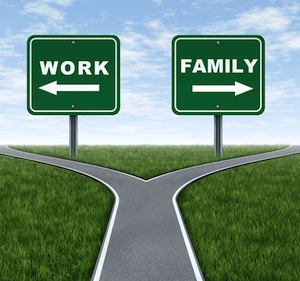Working Mother’s Day
The best way to celebrate Mother’s Day would be to acknowledge that most mothers are now in paid work -- or seek to be -- and, as working mothers, deserve better.
This post originally ran on Robert Reich’s Web page.
My mother went into paid work soon after my father’s clothing store was flooded out in a hurricane, almost wiping him out. She had no choice. We needed the money.
This was some two decades before a tidal wave of wives and mothers went into paid work.
For the few with four-year college degrees the transformation was the consequence of wider educational opportunity and new laws against gender discrimination that opened professions to well-educated women. But for the vast majority it was because male wages were dropping, and wives and mothers had to get paid jobs in order to prop up family incomes.
In 1966, only 20 percent of mothers with young children worked outside the home. By the late 1990s, 60 percent. For married women with children under age 6, the transformation was even more dramatic: from 12 percent in the 1960s to 55 percent by the late 1990s.
Yet America hasn’t accommodated this shift.
I was proud to have implemented the Family and Medical Leave Act when I was Labor Secretary, but, unlike most rich nations, we don’t require that employers offer paid leave.
Nor do we require equal pay for equal work (women’s pay still lags behind male pay for the same job).
Nor, like most rich nations, do we provide universal child care.
More women workers are in minimum-wage jobs than men, yet our minimum wage hasn’t kept up. (If it had kept up with inflation since 1968 it would be over $10 today.)
We’ve even cut aid pre-natal and post-natal medical care for poor infants and mothers.
And we have put a five-year limit on aid to single women with children — a limit that the ongoing effects of the Great Recession have already proved to be too limited.
Nor have we begun to cope with the reality of stagnant or declining real wages that has caused families to work so much harder and longer. Almost all of the economic gains since the late 1970s have gone to the top 1 percent, but our representatives in Washington refuse to acknowledge this or take steps to reverse the trend.
The best way to celebrate Mother’s Day would be to acknowledge that most mothers are now in paid work — or seek to be — and, as working mothers, deserve better.
Robert B. Reich, chancellor’s professor of public policy at UC Berkeley, was secretary of labor in the Clinton administration. Time magazine named him one of the 10 most effective Cabinet secretaries of the last century. He has written 13 books, including the best-sellers “Aftershock” and “The Work of Nations.” His latest, “Beyond Outrage,” is now out in paperback. He is also a founding editor of The American Prospect magazine and chairman of Common Cause.
Your support matters…Independent journalism is under threat and overshadowed by heavily funded mainstream media.
You can help level the playing field. Become a member.
Your tax-deductible contribution keeps us digging beneath the headlines to give you thought-provoking, investigative reporting and analysis that unearths what's really happening- without compromise.
Give today to support our courageous, independent journalists.






You need to be a supporter to comment.
There are currently no responses to this article.
Be the first to respond.